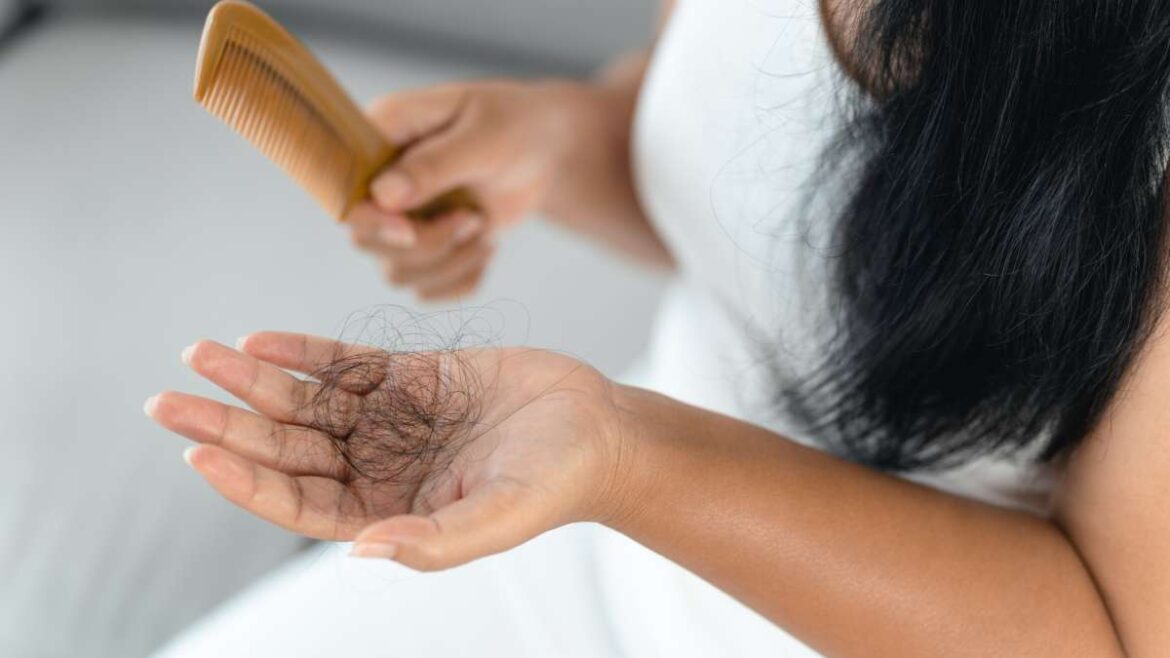
Introduction
Best remedies for hair fall Hair fall is a common concern affecting people across age groups, genders, and lifestyles. While it is normal to lose 50–100 hairs daily, excessive hair shedding can be distressing and may point to underlying health or lifestyle issues. This article explores the causes of hair fall, effective prevention strategies, and available treatment options to help manage and reduce hair loss.
What Is Hair Fall?
Best remedies for hair fall Hair fall Hair fall, or hair loss, refers to the excessive shedding of hair from the scalp or other parts of the body. It may be temporary or permanent and can occur due to various reasons such as genetics, hormonal changes, medical conditions, or environmental factors. Hair fall can manifest as gradual thinning, patchy bald spots, or sudden loosening of hair.
Common Causes of Hair Fall
- Genetics (Androgenetic Alopecia)
One of the most common causes of hair loss is genetic predisposition, known as androgenetic alopecia. This condition leads to a predictable pattern of hair thinning and typically occurs with aging. Men experience receding hairlines, while women may notice overall thinning. - Hormonal Imbalances
Hormonal changes due to pregnancy, childbirth, menopause, or thyroid issues can trigger hair fall. Conditions like polycystic ovary syndrome (PCOS) also affect hormone levels and lead to excessive shedding. - Nutritional Deficiencies
Hair health is closely linked to nutrition. Best remedies for hair fall Hair fall A deficiency in essential nutrients like iron, vitamin D, zinc, and protein can weaken hair strands and slow down growth. - Stress and Lifestyle Factors
Physical or emotional stress, poor sleep, and unhealthy lifestyles can disrupt the hair growth cycle. Telogen effluvium, a condition triggered by stress, causes temporary hair shedding. - Medical Conditions and Medications
Autoimmune diseases like alopecia areata, chronic illnesses, or treatments like chemotherapy can lead to severe hair fall. Certain medications for blood pressure, depression, and arthritis may also have hair loss as a side effect. - Hair Styling Practices
Overuse of heat styling tools, tight hairstylesBest remedies for hair fall Hair fall (like ponytails or braids), and chemical treatments (coloring, straightening) can damage hair follicles, leading to breakage and thinning.
Signs of Abnormal Hair Fall
Best remedies for hair fall
- Sudden clumps of hair falling out when brushing or washing
- Noticeable thinning on Best remedies for hair fall Hair fall the scalp or crown
- Receding hairline or widening part
- Bald patches appearing on the scalp
- Itching, redness, or scaling in affected areas
If you experience any of these symptoms, it’s advisable to consult a dermatologist or trichologist for accurate diagnosis and treatment.
How to Prevent Hair Fall
- Eat a Balanced Diet
Include iron-rich foods, proteins, omega-3 fatty acids, and vitamins in your diet. Foods like eggs, spinach, lentils, nuts, and fish support hair strength and growth. - Gentle Hair Care Routine
Use a mild shampoo suited for your scalp type. Avoid excessive washing and minimize the use of harsh chemicals. Pat your hair dry instead of rubbing it. - Reduce Heat and Styling Damage
Limit the use of hair dryers, curling irons, Best remedies for hair fall Hair fall and straighteners. Opt for loose hairstyles to avoid strain on hair roots. - Stay Hydrated and Exercise Regularly
Drinking enough water and exercising helps improve blood circulation, which nourishes hair follicles and promotes growth. - Manage Stress
Practice stress-relieving activities like yoga, meditation, or hobbies. Reducing stress levels can positively impact your hair cycle.
Treatment Options for Hair Fall
- Topical Treatments
Over-the-counter products like minoxidil are commonly used to slow down hair loss and promote regrowth. Prescription medications like finasteride may be recommended for men. - Platelet-Rich Plasma (PRP) Therapy
Best remedies for hair fall Hair fall This involves injecting the patient’s own platelets into the scalp to stimulate hair growth. It’s considered a safe and effective procedure for many. - Laser Therapy
Low-level laser therapy is a non-invasive treatment that boosts hair follicle activity and helps with hair regrowth. - Hair Transplant Surgery
For advanced hair loss, hair transplant surgery can be an effective solution. It involves relocating hair follicles from denser areas to balding patches.
Conclusion
Hair fall is a multifaceted issue that can be managed with the Best remedies for hair fall Hair fall right combination of care, nutrition, and treatment. Understanding the root cause is key to choosing the most effective solution. If you are struggling with hair fall, don’t ignore it—early intervention can make a significant difference in preserving and restoring your hair health.

